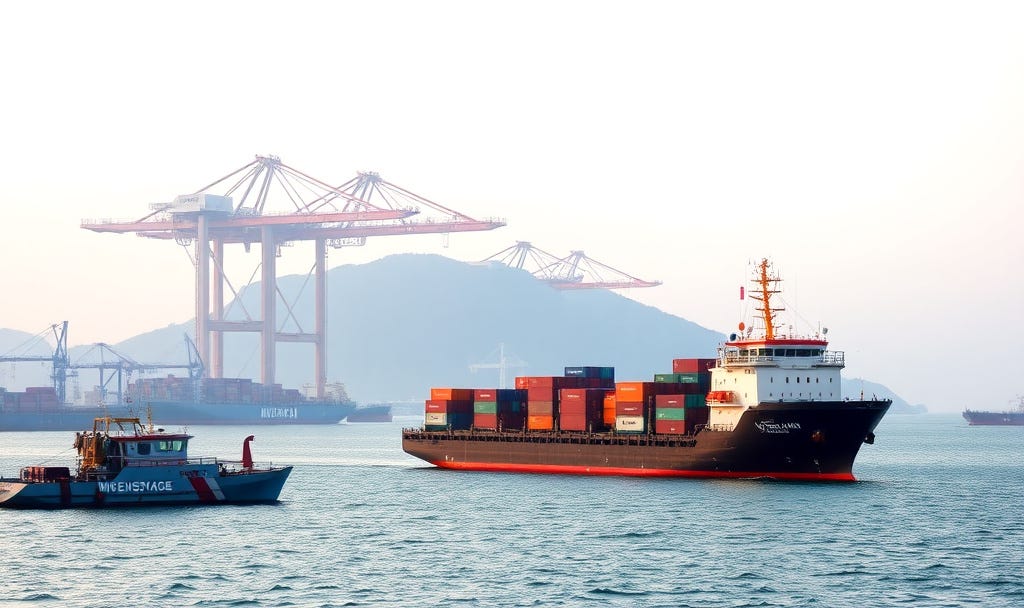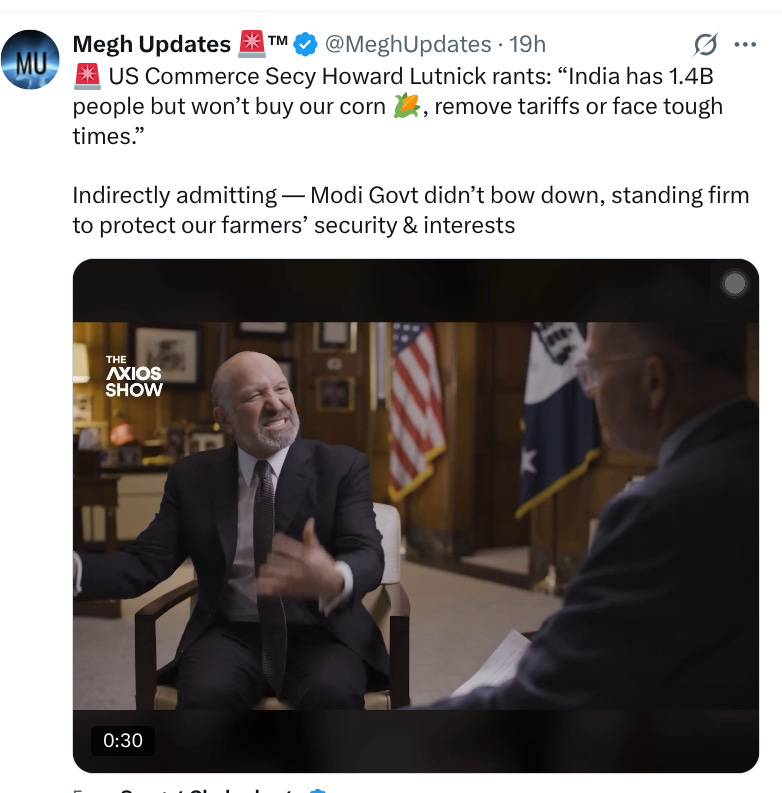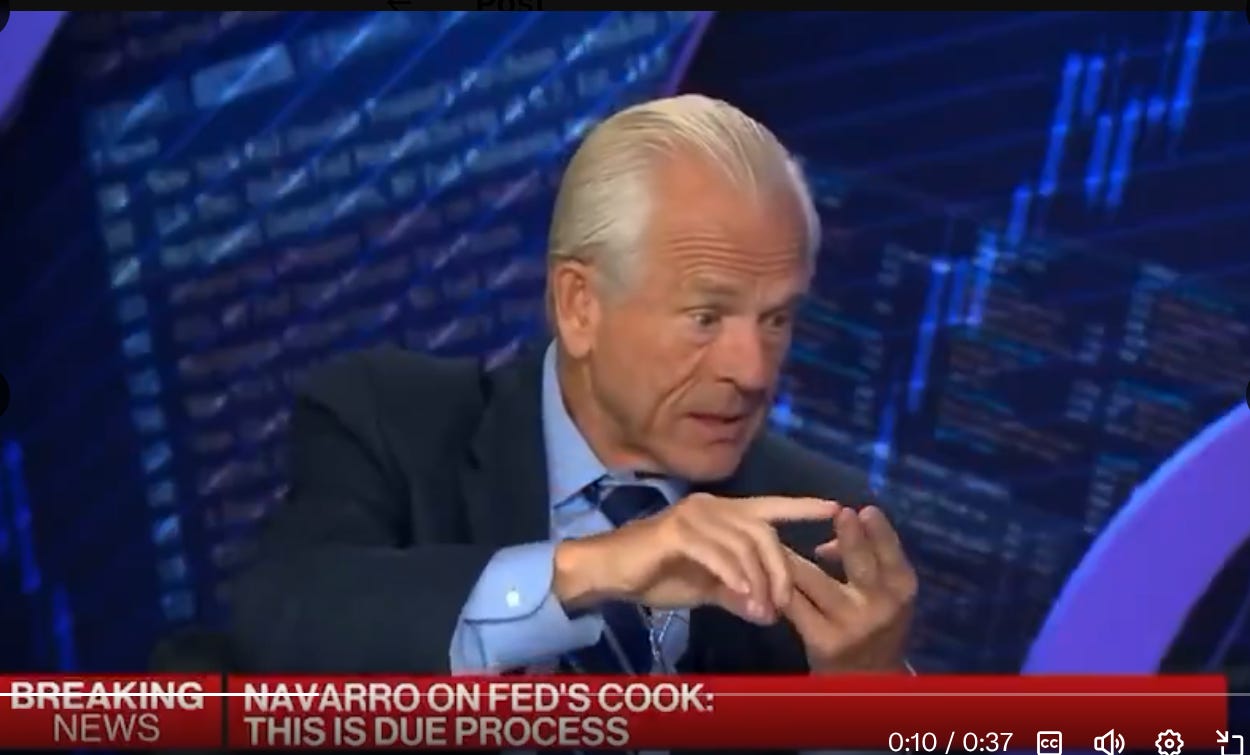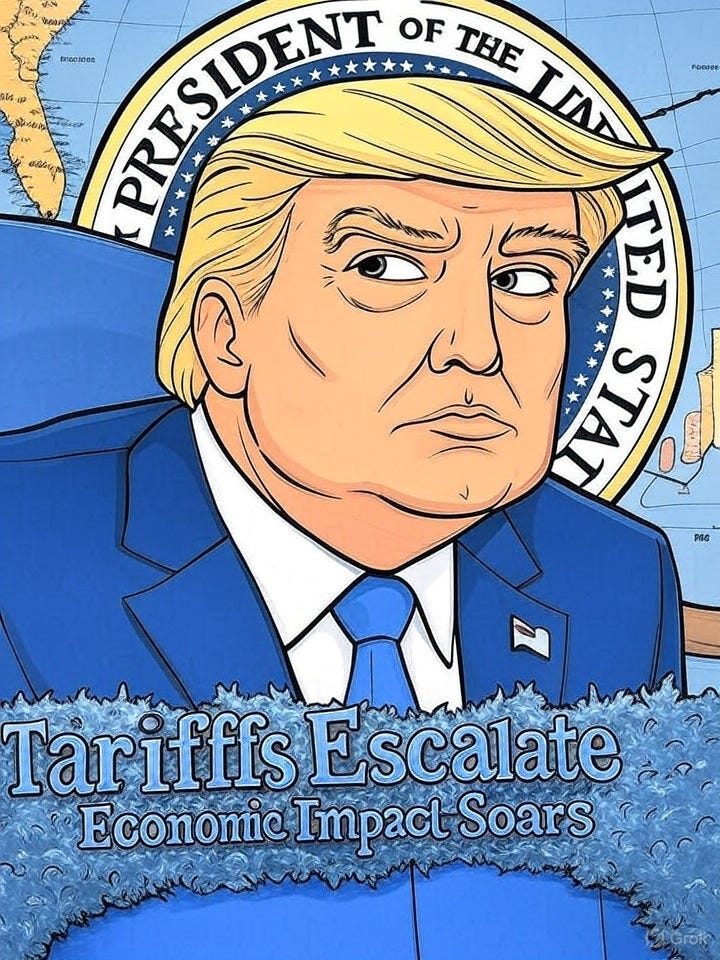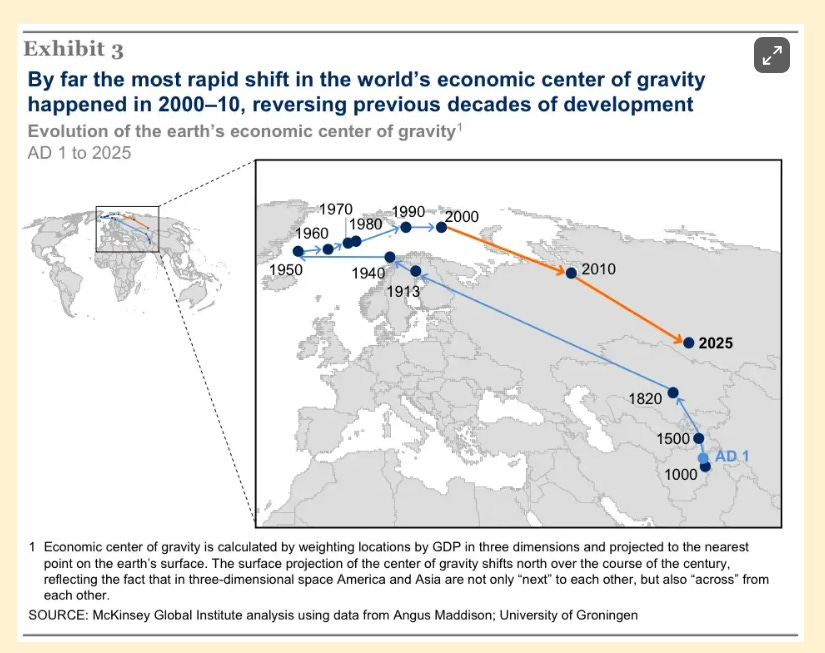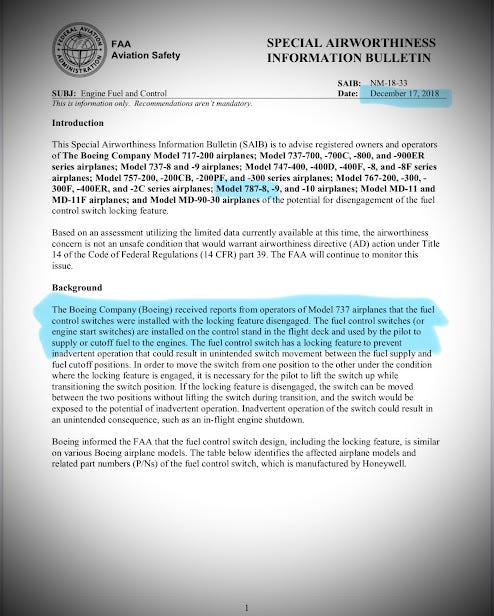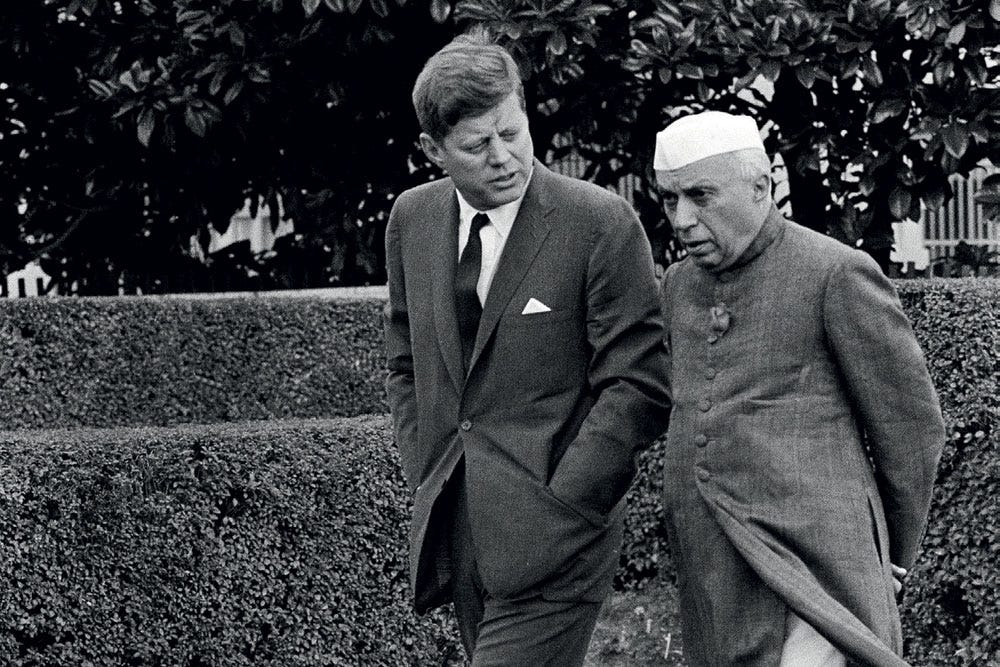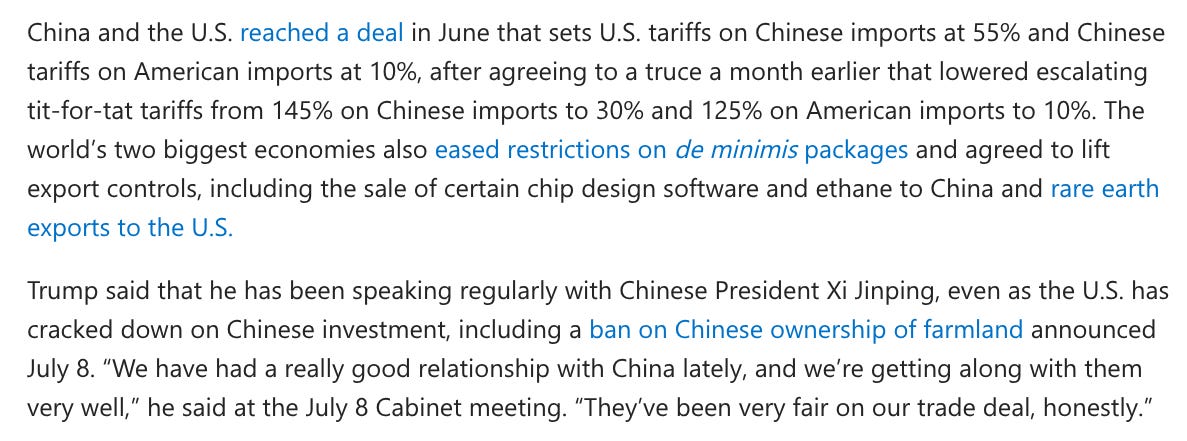Ep. 178: Yet another assault on Adani. We’ve seen this movie before
Description
A version of this essay was published by the Deccan Herald at https://www.deccanherald.com/opinion/adani-s-under-fire-we-ve-seen-this-before-3783432
The repeated, withering attacks on the Adani group are getting to be tiresome, partly because they usually have no merit per se; and partly because the Western habit of weaponizing the narrative is now so evident. It is basically propaganda, with the pliant media manufacturing consent to support foreign policy.
In a recent column in the Financial Times, Janan Ganesh wrote: “Politics, not tech, makes the world go around”. He may have a point, but at the moment, it is the opposite: the breakneck generativeAI race, and China’s near-monopoly in rare earths, are fueling both trade wars and capitulation: for example, Trump said before meeting Xi that “the G2 will be convening shortly”. TACO, anyone?
I said during Biden’s days in “A US-China condominium dividing up the world between themselves”, that for the Deep State, a G2 would be a convenient (short-term) thing to do. Trump apparently has accepted that a) Chinese leverage is insurmountable, b) a division into spheres of influence would work best. Sadly, it would be disastrous for the US (and the Quad) in the medium term to make China Asia’s hegemon.
But it is happening. As BNP Paribas puts it in a research note quoted by the Financial Times, “[Washington]... is now dealing with a peer rival capable of imposing material economic harm on it — a relatively new position for the US and a development which, at least to us, confirms China’s ascendancy to global economic superpower status.”
It would be entirely rational for a G2 to prevent a third great power from rising, and India is the only candidate: Brazil, Russia, South Africa, the EU are handicapped in one way or the other, e.g. geography, resources, demographics, politics. Therefore the G2 are imposing a Thucydides Trap on India: wage economic (if not kinetic) war, and balkanize it.
Everybody has learned lessons from the recent past (“Confessions of an economic hit-man”, anyone?): how Japan was ruined via the Plaza Accord, how Britain lost its pre-eminence by debasing its currency, and how the US allowed itself to be systematically de-industrialized by China over the last 30 years. They are not going to let India grow, certainly not easily.
Thus Adani is a proxy for India. Mark Mobius, a legendary investor, said, “Investing in Adani is like investing in India”. That is not an exaggeration, because Adani has demonstrated the capability to deliver in more than one domain, especially in ports and airports (Disclaimer: I have a small position in Adani Ports). They have operations in Colombo, Haifa (Israel) and Abbot Point (Australia), which makes them a potentially major player in global shipping, not to mention their container ports at Mundhra and Vizhinjam (Trivandrum).
There have been several waves of attacks on the Adani group, the first in June 2021 alleging improprieties in investments by Mauritius-based funds; the second in January 2023 with the ‘bombshell’ Hindenburg (a short-seller) report alleging stock manipulation and accounting fraud; the third in November 2024, a US Dept of Justice allegation about bribery; the fourth in October 2025 by the Washington Post alleging the Indian government induced LIC to invest $3.9 billion in Adani firms.
When the Hindenburg report was publicized as the “largest con in corporate history” by pliant media like Reuters, FT and WSJ, I wrote that “The Adani Group may not be derailed by Hindenburg”. I also did a video conversation with Professor Narayanan Komerath on the topic.
In fact, in a “dog it was that died” outcome, it was Hindenburg that closed shop; Adani has recovered even after a second Hindenburg report accusing the SEBI chief as well.
Adani has been successful in their ports and energy businesses; they are doing well in airports; their efforts in green energy and in data centers (the new Google AI data center in Vishakhapatnam) may yet prove to be winners. Thus Adani has shown it can compete well in difficult infrastructure sectors. It is true that these need to align with government policies.
Which brings whispers of ‘crony capitalism’, which is rich coming from the US, where ‘robber barons’ like John D Rockefeller, Andrew Carnegie, J P Morgan and Cornelius Vanderbilt created enormous fortunes primarily through cronyism. Have you heard the dictum “What’s good for General Motors is good for America”? Boeing, the Koch Brothers, Goldman Sachs and Big Tech are current beneficiaries of State munificence.
India has had its share of crony capitalists who provided citizens with shoddy goods at high prices. I don’t dare name them, but you know who they are. Every country supports its national champions: Japan’s zaibatsu, Korea’s chaebol, China’s State Owned Companies.
And recently J P Morgan Chase announced it is investing $1.5 trillion in US industries such as critical minerals, pharma, semiconductors, energy, drones, cybersecurity, AI and so on. Surely this is after consultations with and a go-ahead from the US Government. Similarly, it is neither sinful nor unusual for the Indian State to support dominant, effective players. More power to Adani!
800 words, 31 October 2025
This is a public episode. If you'd like to discuss this with other subscribers or get access to bonus episodes, visit rajeevsrinivasan.substack.com/subscribe

